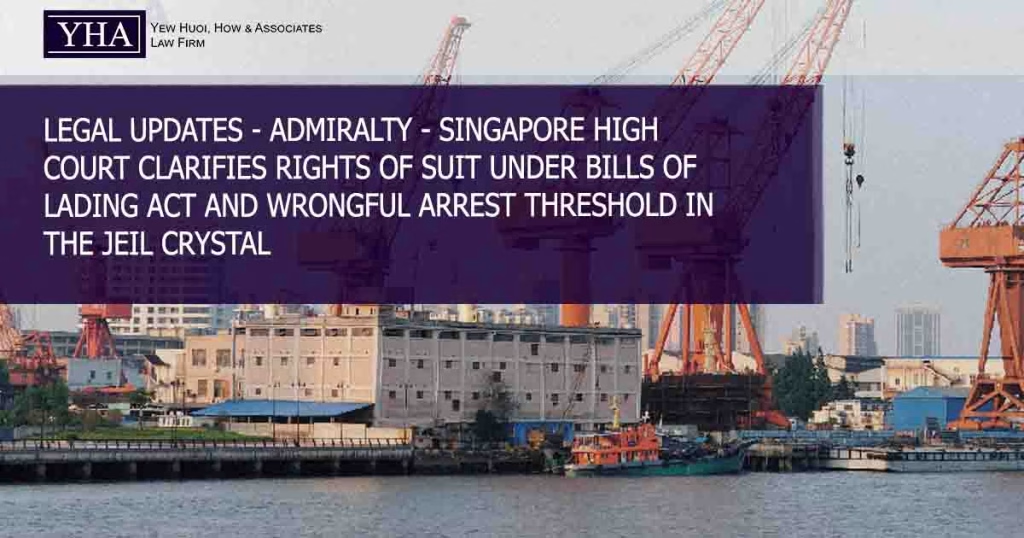1. Summary and Facts
Owners of or Other Persons Interested in the Cargo Lately Laden Onboard “Jeil Crystal” v Owners of the Vessel “Jeil Crystal” [2025] 2 Lloyd’s Rep 299 concerns a case involving a Swiss bank, Banque Cantonale de Genève (BCGE), which financed a shipment of lube oil carried on the vessel Jeil Crystal, owned by Jeil International Co Ltd. BCGE initially held the original bills of lading, giving it temporary legal rights to the cargo. However, at the request of its customer, GP Global, the bank endorsed and returned those bills, effectively giving up its rights. GP Global then arranged for new “switch bills of lading” to be issued to a different bank, and the cargo was delivered in Bangladesh against a letter of indemnity. Months later, BCGE wrongly claimed it was still the lawful holder of the first bills and sued the shipowner for wrongful delivery, even arresting the vessel. It was later proven that BCGE no longer possessed the bills at the time of the arrest.
2. Legal Issues
• Whether BCGE had any contractual or tortious rights of suit under the bills of lading when the cargo was discharged.
• Whether the shipowner was liable of duty or wrongful switching of bills.
• Whether BCGE’s arrest of the vessel was wrongful due to its lack of standing as the lawful holder of the bills of lading.
3. Court’s Findings
• The Singapore High Court dismissed BCGE’s claim and partially allowed the shipowner’s counterclaim for wrongful arrest.
• BCGE was the lawful holder only between 19 and 25 June 2020, after receiving the First Set BLs and before endorsing them to GP Global.
• Upon endorsement and delivery to GP Global on 25 June, BCGE divested itself of all rights under section 2(5) of the Singapore Bill of Lading Act 1992 (“BLA”), which extinguishes the transferor’s rights once transferred.
• Therefore, when BCGE commenced proceedings and arrested the vessel on 10 October 2020, it had no standing as holder or party to the contract of carriage.
• BCGE’s claim for wrongful switch BL and misdelivery was dismissed in full. The switch itself was lawful, as BCGE had already relinquished possession and rights in the bills when it was effected.
• The arrest was wrongful, as BCGE acted with gross negligence, implying malice by failing to verify that it held the bills before seeking arrest.
4. Practical Implications
This judgment has clarified the blur line in the legal position of trade finance banks and shipowners under the Bills of Lading Act 1992 as well as carriage of goods by sea, whereas:
• Trade finance banks must ensure they retain possession of the original bills of lading if they wish to preserve their legal rights over the cargo or to sue under the contract of carriage.
• Parties seeking to arrest a vessel must verify that they have a valid legal basis and standing to do so.
This case serves as a clear reminder of the strict application of the Bills of Lading Act 1992, where it carefully protect the interest of the parties in contract.

